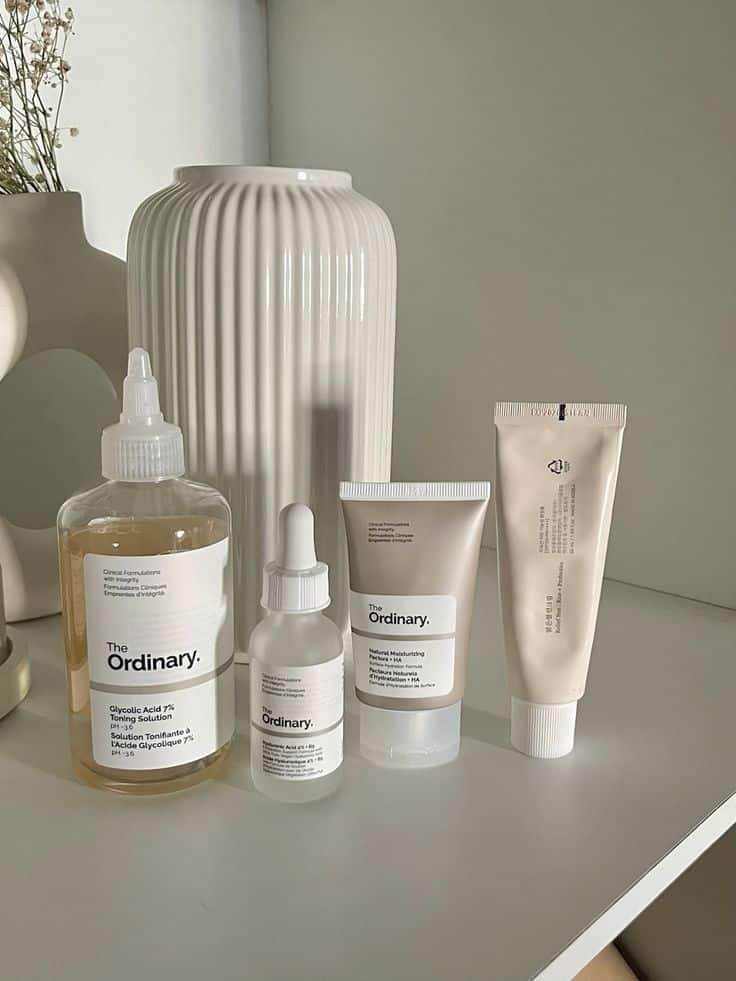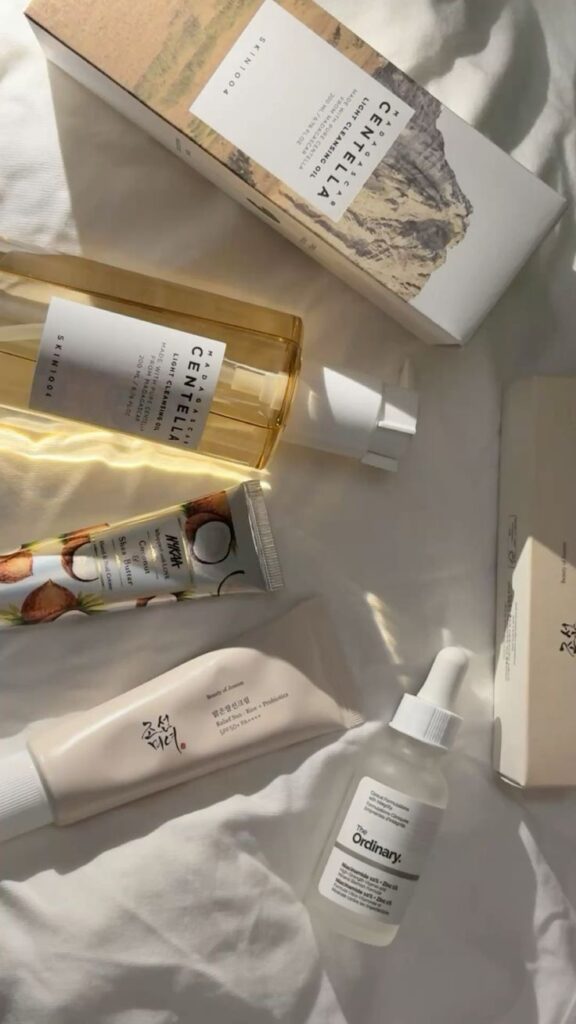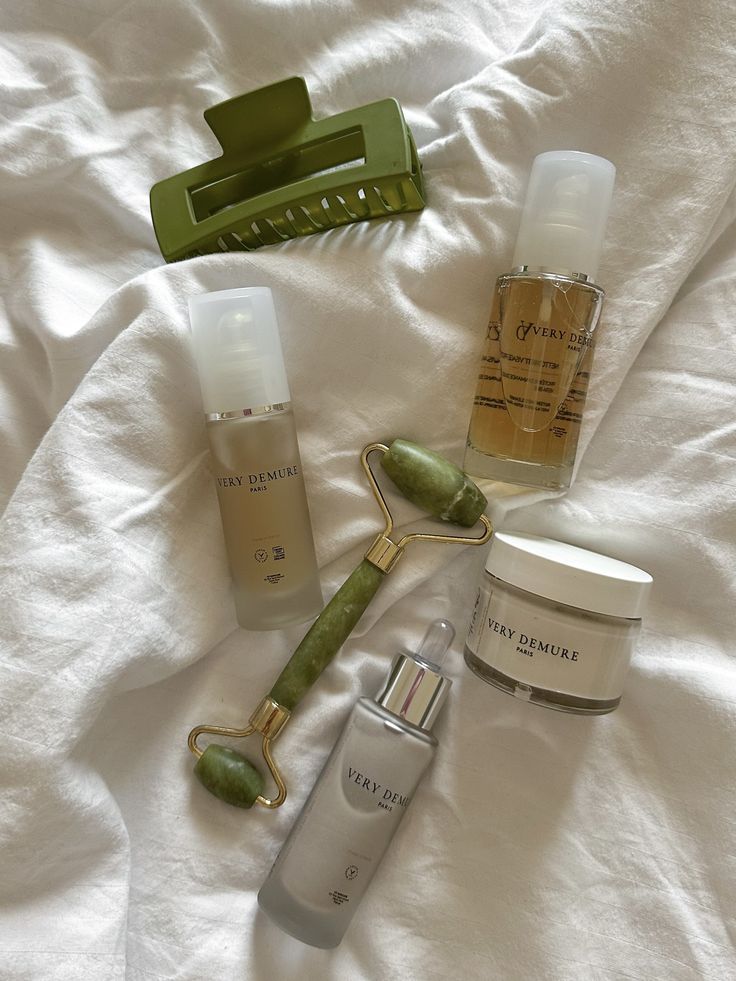As temperatures drop, you might notice your skin feeling drier, tighter, or more sensitive than usual. Cold air, harsh winds, and low humidity levels can strip your skin of essential moisture, leaving it prone to irritation and flakiness. Adapting your skincare routine for cold weather is crucial to keeping your skin healthy, comfortable, and protected all season long.
With a few smart changes—like choosing richer moisturizers, using gentle cleansers, and making small lifestyle tweaks—you can effectively guard against winter dryness and discomfort. Whether your skin is naturally oily, dry, or somewhere in between, there are steps you can take to maintain your skin’s barrier and glow, even in the harshest weather.



Key Takeaways
- Cold weather affects your skin’s moisture and barrier.
- Simple skincare swaps help protect against irritation.
- Every skin type can benefit from seasonal skincare updates.
Understanding Cold Weather’s Impact on Skin
Cold air, wind, and dry indoor heat each put extra stress on your skin. These changes can lead to both immediate and longer-term effects such as redness, irritation, and dehydration.
How Cold Temperatures Affect Skin Barrier
When temperatures drop, your skin’s natural barrier—responsible for locking in moisture—becomes less effective. The dry, cold air pulls water from your skin, while harsh winds physically disrupt the barrier’s lipid layer. Result: your skin loses hydration faster and becomes more susceptible to environmental irritants.
Repeated exposure to these conditions may weaken your skin’s defenses, causing them to become more permeable. You might notice increased sensitivity, flakiness, or peeling. Even indoor heating plays a role, as it lowers indoor humidity and accelerates moisture loss.
To help restore your skin’s barrier, look for products containing ceramides, hyaluronic acid, or glycerin. These ingredients actively support the skin’s natural defenses and help retain moisture during colder months.
Common Winter Skin Concerns
With the onset of winter, dry skin becomes one of the most frequent complaints. Many people experience tightness, roughness, cracking, or even itching. Hands, face, and lips are especially prone to these issues due to their direct exposure.
Other common conditions include increased flaking or eczema flare-ups. Even if you don’t typically suffer from sensitive skin, you might notice extra redness or discomfort. Fine lines and wrinkles may also appear more noticeable as the skin’s moisture diminishes.
Proactive skincare steps can really help:
- Apply a thicker moisturizer
- Reduce the use of harsh cleansers
- Wear gloves and lip balm
- Avoid very long, hot showers
These strategies help protect your skin and keep it feeling comfortable.
Why Hydration Declines in Winter
Hydration levels in your skin drop in winter due to both outside and inside factors. Cold air contains less moisture, so your skin loses water through evaporation much faster. When you turn up the heat indoors, humidity falls even further, making it harder for skin to hold onto what little moisture remains.
Less sunlight and more time spent indoors can also decrease your body’s natural oil production, reducing your skin’s ability to guard against dryness. Dehydration may be more pronounced if you don’t drink enough water during the colder months.
To counteract these effects: use a humidifier, stay hydrated, and choose skincare products with hydrating ingredients. Moisturizing often and avoiding strong soaps can help maintain healthy skin hydration all winter.



Cold Weather Skincare Routine Essentials
Cold air can lead to dryness and irritation, which means your skin needs targeted products and small routine changes to maintain hydration and strength. Using richer cleansers, intensifying moisturization, and supporting your skin barrier are all steps that help your skin stay comfortable in cold weather.
Choosing a Moisturizing Cleanser
Switching to a moisturizing cleanser is important when temperatures drop. Gel or foaming cleansers may strip away natural oils, so look for a creamy or hydrating formula. Ingredients such as glycerin or gentle botanical oils like jojoba oil help retain moisture during cleansing.
Make sure the cleanser does not leave your face feeling tight or dry. Instead, your skin should feel soft and comfortable after washing. For morning use, consider a cleanser formulated for sensitive skin to further reduce irritation risk.
Key ingredients to look for in moisturizing cleansers:
| Ingredient | Benefit |
|---|---|
| Glycerin | Draws moisture into skin |
| Jojoba Oil | Hydrates, mimics skin lipids |
| Shea Butter | Softens and soothes |
Layering Moisturizer and Serum
Layering both a serum and a moisturizer creates longer-lasting hydration. Start with a hydrating serum—hyaluronic acid is excellent for attracting and holding water in your skin. Apply it to damp skin for best results.
Next, use a heavier moisturizer to lock in the serum’s benefits. In winter, a thick moisturizer with ceramides or shea butter offers more protection against dryness. Don’t forget to apply moisturizer to your neck and even your hands after washing.
If your skin feels extra dry, reapply a light layer of moisturizer during the day. Opt for fragrance-free options if you are prone to sensitivity.
Incorporating Barrier-Boosting Ingredients
A healthy skin barrier prevents moisture loss and keeps irritants out. Focus on products containing ceramides, which are lipids that naturally occur in your skin. Ceramides help repair the barrier and retain hydration.
Look for barrier creams or overnight repair masks for an extra boost. Products with shea butter can also provide occlusive properties, sealing in moisture. Jojoba oil is another beneficial option, as its composition closely resembles your skin’s natural oils, making it gentle and effective for barrier support.
Barrier-boosting steps:
- Use products with ceramides daily
- Add shea butter or jojoba oil-based treatments weekly
- Avoid over-exfoliating, which thins the barrier
Adjusting Morning and Night Routines
Your morning and night routines may require slight adjustments to protect against harsh weather. In the morning, use a moisturizing cleanser, follow with a hydrating serum, then layer on a thick moisturizer.
Broad-spectrum sunscreen should still be applied, even on cloudy days, to defend against UV exposure. At night, your skin repairs itself, so use more intensive barrier creams or overnight masks if needed.
Apply moisturizer within a few minutes of washing your face to trap surface moisture. If you use actives like retinol, consider alternating days or using a buffer step (like moisturizer first) to reduce irritation.



Special Winter Care for Different Skin Types
Cold weather brings unique challenges for your skin. The right winter skincare approach depends on your skin type and any specific concerns such as dryness, oily patches, acne, eczema, or psoriasis.
Managing Dry and Sensitive Skin
Dry and sensitive skin often suffers in winter due to low humidity and indoor heating. You may notice flakiness, tightness, or irritation. Switch to a gentle, fragrance-free cleanser to avoid stripping natural oils.
Apply a rich moisturizer containing ceramides, hyaluronic acid, or glycerin right after washing your face. Layering a hydrating serum before your moisturizer can help lock in extra moisture.
Limit hot showers, as hot water can dry out your skin further. Pat your skin dry gently with a towel—do not rub. Using a humidifier in your bedroom at night can help keep moisture in the air and your skin hydrated.
Ingredients to look for:
- Hyaluronic acid
- Ceramides
- Shea butter
Avoid: Alcohol-based toners, harsh exfoliants, and heavily fragranced products.
Addressing Acne-Prone and Oily Skin
Oily and acne-prone skin can still experience dryness in winter, especially with indoor heating. This can actually cause your skin to produce more oil, leading to breakouts. Use a gentle, non-comedogenic cleanser that does not strip your natural oil barrier.
Opt for a lightweight, oil-free moisturizer to keep your skin hydrated without clogging pores. Consider products with ingredients like niacinamide, which helps to control oil production and soothe inflammation.
Exfoliate only once or twice a week using a mild chemical exfoliant to prevent clogged pores. Avoid heavy creams, as these may trigger more acne and make oily skin feel greasy.
Quick tips:
- Drink plenty of water to help regulate sebum production.
- Avoid over-washing, which can irritate your skin.
Protecting Skin with Eczema or Psoriasis
If you have eczema or psoriasis, winter can trigger more flare-ups. Dry air and cold temperatures weaken the skin barrier, making symptoms worse. Bathing with lukewarm water and using a mild, unscented cleanser can help prevent irritation.
After washing, apply a thick, ointment-based moisturizer containing ceramides or petrolatum. These help seal in moisture and repair the skin barrier. Always keep your skin covered in harsh weather to reduce exposure to cold air.
Watch out for wool clothing, which can be irritating—wear soft, breathable fabrics instead. Be consistent with any prescribed topical treatments, and consult your healthcare provider if your symptoms worsen.
Helpful habits:
- Use a humidifier to add moisture to indoor air.
- Reapply moisturizer throughout the day, especially to areas prone to flare-ups.



Protective Measures and Expert Tips for Healthy Winter Skin
Winter skin needs extra attention to stay protected, comfortable, and hydrated. Focusing on targeted sun protection, reliable lip care, and knowing when to seek medical advice can prevent many seasonal skin issues.
Importance of SPF and Sun Protection
Cold weather doesn’t remove the need for sun protection. UV rays remain strong even when skies are cloudy or the temperatures drop. Snow reflects as much as 80% of UV rays, increasing your exposure when outdoors.
Apply a broad-spectrum sunscreen with at least SPF 30 every morning. Remember your face, neck, and hands—these areas are the most exposed. If you spend time near snow or water, reapply every two hours. Look for formulas with moisturizing ingredients to help offset dryness.
Pro Tip: Mineral sunscreens with zinc oxide or titanium dioxide are less likely to irritate sensitive or dry winter skin. Keep a small tube in your bag to stay protected on the go.
Lip Balm and Specialized Care for Lips
Chapped lips are common in winter due to low humidity and wind. Choose a lip balm containing soothing ingredients such as shea butter, lanolin, or petrolatum. Avoid lip balms with fragrances, menthol, or salicylic acid, which can cause more irritation.
Apply lip balm frequently, especially before heading outdoors or going to bed. For extra protection, look for formulas with SPF. This helps prevent sun damage and darkening, especially if you spend time outside.
If your lips get severely cracked or bleed, try applying a thick ointment at night. Use a humidifier indoors to maintain moisture in the air and drink plenty of water through the day.
When to See a Dermatologist
If over-the-counter solutions aren’t enough, it may be time to make an appointment with a dermatologist. Signs to watch for include persistent redness, itching, cracking, or sores that don’t heal after a couple of weeks.
Dermatologists can recommend targeted treatments—like prescription creams—for stubborn dryness, eczema, or winter flares of conditions like psoriasis. Keeping track of your symptoms with a simple table can help:
| Symptom | Duration | Tried Products |
|---|---|---|
| Dry patches | 2 weeks | Cream, Ointment |
| Cracking lips | 10 days | Lip Balm, Ointment |
Prompt intervention helps prevent complications and keeps your skin healthy all winter.





